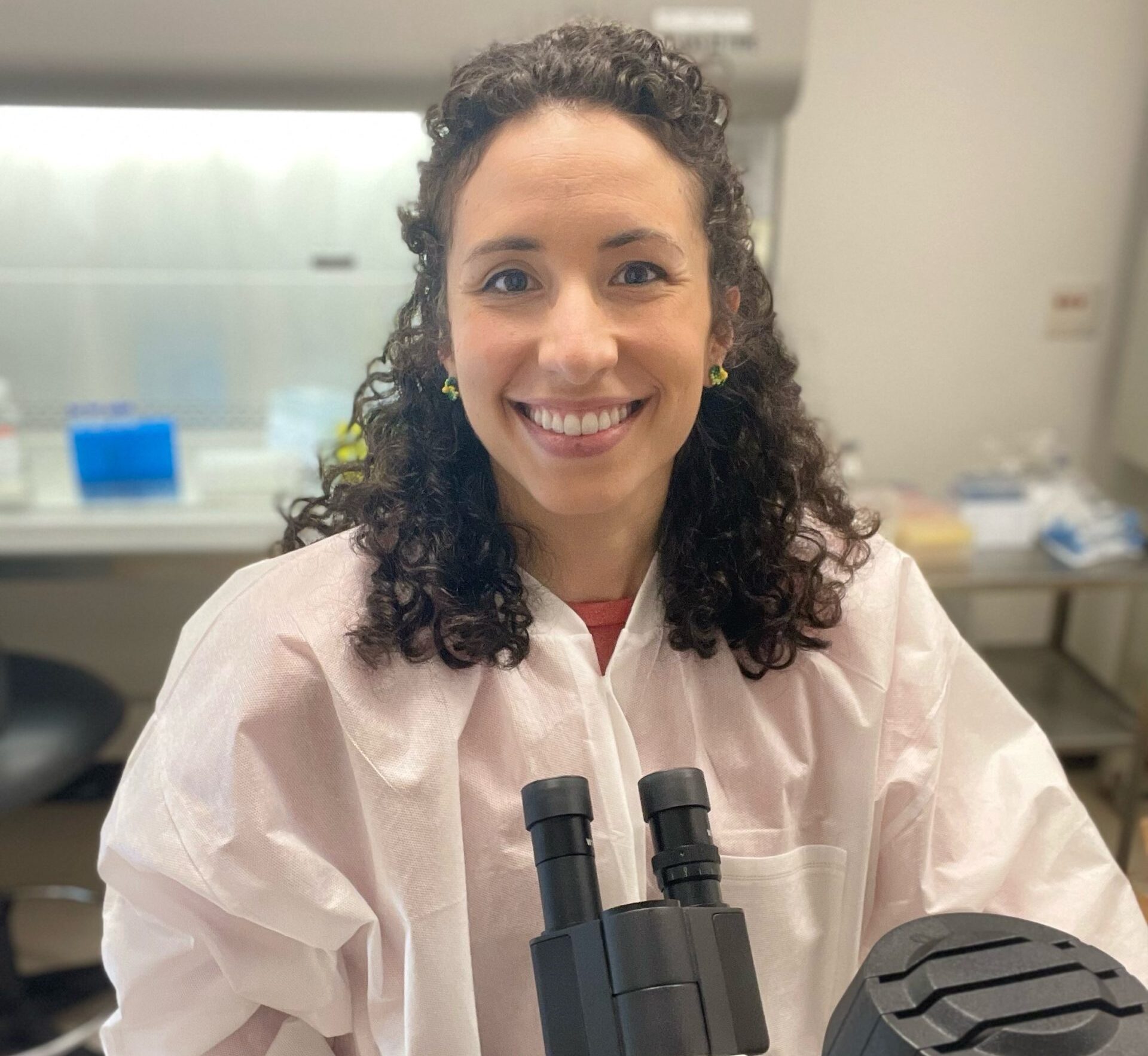The overall objective of the University of Washington (UW) Nutrition Obesity Research Center Pilot and Feasibility (P&F) Program is to provide an infrastructure to support and effectively train the next generation of basic, translational, clinical and epidemiological scientists in the fields of nutrition, obesity and metabolism with a goal to enhance our knowledge and understanding of body weight regulation, the etiology and pathogenesis of nutrition-related disorders, to identify novel, therapeutic targets to prevent and treat obesity and to educate the broader community. The Specific Aims of the Program are to:
- To provide junior investigators of high promise the opportunity to obtain crucial pilot data needed to launch their career and to compete successfully for independent peer-reviewed funding.
- To provide a mechanism for encouraging talented junior investigators to embark on academic careers in nutrition/obesity research.
- To support pilot projects by established investigators in other research fields into the area of nutrition and obesity research.
PILOT & FEASIBILITY COLLABORATIVE PROGRAM
This year, the UW NORC will collaborate with the Diabetes Research Center (DRC) in a joint Pilot and Feasibility Research Program. The program collectively offers multiple awards of $50,000/year for up to 2 years to promising investigators from any disciplinary background performing research in the fields of nutrition, metabolism, diabetes, and obesity. Proposals may include basic, clinical, translational, or population-based studies that align with one or more of the institutions’ respective research themes. Awards are funded by the NIH (P30 grants DK017047 and DK035816) and the UW.
2025 Pilot and Feasibility Award Call – is now closed.
2024 UW NORC P&F RECIPIENTS:
 Dr. Leticia Sewaybricker, MD, PhD, has been awarded the Pilot and Feasibility Award through the UW Nutrition Obesity Research Center for his project entitled: “Use of hypothalamic imaging in infants to understand postnatal weight gain.”
Dr. Leticia Sewaybricker, MD, PhD, has been awarded the Pilot and Feasibility Award through the UW Nutrition Obesity Research Center for his project entitled: “Use of hypothalamic imaging in infants to understand postnatal weight gain.”
Dr. Leticia Sewaybricker received her MD at the University of Campinas, Brazil, and subsequently completed both her residency and fellowship at the University of Campinas in Pediatrics. Dr. Sewaybricker then completed her PhD at the University of Campinas, Brazil in Child and Adolescent Health before completing her postdoctoral research fellowship at the University of Washington under the mentorship of Dr. Ellen Schur. Dr. Sewaybricker is currently an Acting Instructor of Medicine within the Division of General Internal Medicine at the University of Washington. She is a physician-scientist dedicated to studying prenatal influences on brain regulation of body weight and cardiometabolic function in children.
Project description: Early life exposures include both pre and postnatal factors that influence health throughout life. Among early life risk factors, rapid postnatal weight gain elevates the risk for obesity and other chronic diseases over the lifespan. Infants who experience fetal growth restriction more commonly present a rapid “catch-up” growth. The biological mechanisms involved in rapid postnatal weight gain are uncertain but could be through an effect of the prenatal environment on the hypothalamus. This work proposes to apply neuroimaging of the hypothalamus in infants to better understand the central nervous system contributors to postnatal weight gain. Previous studies have demonstrated that microstructural abnormalities (gliosis) in a key brain region for energy homeostasis, the mediobasal hypothalamus (MBH), precede obesity in animal models of diet-induced obesity, and is also associated with obesity in both children and adults. The aims of this proposal are to: 1) determine the role of neonatal hypothalamic gliosis in rapid postnatal weight gain; 2) using MRIs collected in infants with prenatal cannabis exposure (PCE) as a model of fetal growth restriction, determine if hypothalamic gliosis is increased in infants with PCE, and if this is associated with increased body weight gain. This work will advance our knowledge of central mechanisms that might link prenatal exposure to obesity risk and support future grant applications studying brain contributions to the early life origins of obesity.
 Dr. Kendra Francis-Stream, MD, has been awarded a Pilot and Feasibility Award through the UW Nutrition Obesity Research Center for her project entitled: “Mechanisms of exclusive enteral nutritional therapy in Crohn’s disease.”
Dr. Kendra Francis-Stream, MD, has been awarded a Pilot and Feasibility Award through the UW Nutrition Obesity Research Center for her project entitled: “Mechanisms of exclusive enteral nutritional therapy in Crohn’s disease.”
Dr. Francis-Stream received a BA at Pomona College, CA before completing her MD at the University of Washington. She subsequently completed her residency and fellowship at Seattle Children’s Hospital and the University of Washington within the Department of Pediatrics. Dr. Francis-Stream was recently promoted to an Assistant Professor within the Department of Pediatrics and the Division of Gastroenterology and Hepatology. She is a pediatric gastroenterologist with clinical expertise and a research interest in the pathophysiology of pediatric inflammatory bowel disease.
Project description: Intestinal bowel disease (IBD), which includes ulcerative colitis (UC) and Crohn’s disease (CD), are increasingly common chronic inflammatory conditions of the gastrointestinal tract that are associated with significant morbidity and economic cost. While immunosuppression therapies can promote mucosal healing and lead to clinical remission, exclusive enteral nutrition (EEN) is also safe and effective treatment for CD without need for immunosuppression, although the underlying mechanism(s) remain to be elucidated. An important part of intestinal barrier function is the intestinal extracellular matrix (ECM). This proposal will detail the effect of EEN on an important component of the ECM, chondroitin sulfate and dermatan sulfate glycosaminoglycan (CS/DS-GAG) chains. In support of this, recent work from the Francis-Stream laboratory has show pathological alterations in the CS/DS-GAG composition in the ileum of patients with active CD, but have yet to detail how these alterations may be affected by EEN therapy. To test this, studies in Aim 1 will compare the, the CS/DS-GAG composition after EEN vs. corticosteroid induction therapy in patients with CD. Studies in Aim 2 will use a preclinical model of CD to determine whether oral supplementation of CS/DS-GAG components will improve disease outcomes with or without EEN therapy. This work will be supported by the Nutrition Obesity Research Center Energy Balance Core, the Clinical and Translational Research Services Core and the Biostatistics Subcore. The overarching hypothesis is that EEN will induce clinical remission by normalizing the imbalance of inflammatory and stabilizing CS/DS-GAG components in the ileum of patients with CD, and in preclinical models of CD. Such a finding would support future clinical trials testing EEN and CS/DS-GAGs in patients with CD.
Previous UW NORC P&F Program Awardees

Karolline May, PhD
Department of Medicine, Division of Metabolism, Endocrinology, and Nutrition
SCFA Serve as a Direct Link Between Gut Microbiota and Adipocyte Metabolism via FFAR2 Signaling, Thereby Beneficially Regulating Whole-Body Homeostasis
01/01/2024 - 12/31/2024

Vitor Oliveira, PhD
School of Nursing
Relationship Between Myosteatosis, Sarcopenia, Physical Activity, and Diet Among Adults with HIV
01/01/2024-12/31/2024

Carlos Campos, PhD
Department of Medicine, Division of Metabolism, Endocrinology, and Nutrition
Uncovering Behavioral Representations of Energy State
07/01/2023 - 06/30/2025

D. Taylor Hendrixson, MD
Department of Pediatrics and Division of Neonatology
The Plasma Metabolome, Gut Microbiome, and Growth in HIV-Exposed Uninfected Infants
07/01/2023 - 06/30/2025

Kim Alonge, PhD
Department of Medicinal Chemistry
Role of Hypothalamic PNNs in Nutrient and Hormone Sensing Dysfunction in Obesity
07/01/2022 - 06/30/2024

Oleg Zaslavsky, PhD
School of Nursing
Pilot Evaluation of a Mobile Intervention to Support Mediterranean Diet (MedD) for Persons with Mild Alzheimer Disease and Alzheimer Disease Related Dementia’s (AD/ADRD) and Frailty
07/01/2022 - 06/30/2024

Ana Valencia, PhD
Department of Radiology
The Role of Mitochondrial Metabolism in Weight Loss in the Context of Obesity
03/01/2022 - 02/28/2023

Barbara Juarez, PhD
Department of Psychiatry
Effect of a High-Fat Diet on VTA Dopamine Neuron Activity and Behavior
04/01/2022 - 03/31/2023

Meghan Koch, PhD
Fred Hutch Cancer Center
Regulation of White Adipose Tissue Function and Energy Balance by Breastmilk Antibodies
07/01/2021 - 06/30/2023

Jarrad Scarlett, MD, PhD
Department of Pediatrics
Hypothalamic Mechanisms of FGF1-Mediated Remission of Diabetic Hyperglycemia
07/01/2016 - 06/30/2018

Mauricio Dorfman, PhD
Department of Medicine
The Role of CNS CX3CL1-CX3CR1 Signaling in Estrogen-Mediated Protection Against Obesity and Diabetes
07/01/2015 - 06/30/2017

Jenny Kanter, PhD
Department of Medicine
A Novel Model of Type 2 Diabetes-accelerated Atherosclerosis
07/01/2014 - 06/30/2016

Davene Wright, PhD
Department of Pediatrics
Parent Attitudes Toward Child Health and Weight
07/01/2014 - 06/30/2016

Michelle Averill, PhD
Department of Environmental and Occupational Health Sciences
The Effects of Dietary Glycemic Load on Postprandial Lipemia and HDL Composition and Function
07/01/2013 - 06/30/2015

Laura den Hartigh, PhD
Department of Medicine
Trans-10, Cis-12 Conjugated Linoleic Acid Enhances Lipid Utilization in Adipocytes by Increasing Mitochondrial Metabolism and Insulin Resistance
07/01/2012 - 06/30/2014

Katya Rubinow, MD
Department of Medicine
Androgen-mediated Pathway in the Regulation of Insulin Sensitivity in Men
07/01/2012 - 06/30/2014

Joshua Thaler, MD, PhD
Department of Medicine
The Development Role of PPAR-y in Adult Metabolism
07/01/2011 - 06/30/2013

Mario Kratz, PhD, MS
Department of Epidemiology and Medicine
Vitamin D and Low-grade Adipose Tissue Inflammation
07/01/2011 - 06/30/2013

Tomas Vaisar, PhD
Department of Medicine
Effects of Omega-3 Polyunsaturated Fatty Acid Diet Supplementation on HDL and its Biological Activity
07/01/2009 - 06/30/2011
Carole Wilson, PhD
Medical University of South Carolina
ADAM17-mediated Proteolysis in Diet-induced Obesity
07/01/2009 - 06/30/2011

Andrew Hoofnagle, MD, PhD
Department of Laboratory Medicine
HDL and Cardiovascular Risk in Chronic Kidney Disease
07/01/2007 - 06/30/2009
P&F Program Leadership

Greg Morton, PhD
Program Director
gjmorton@uw.edu

Ana Valencia, PhD
Assistant Program Director
apv4@uw.edu
